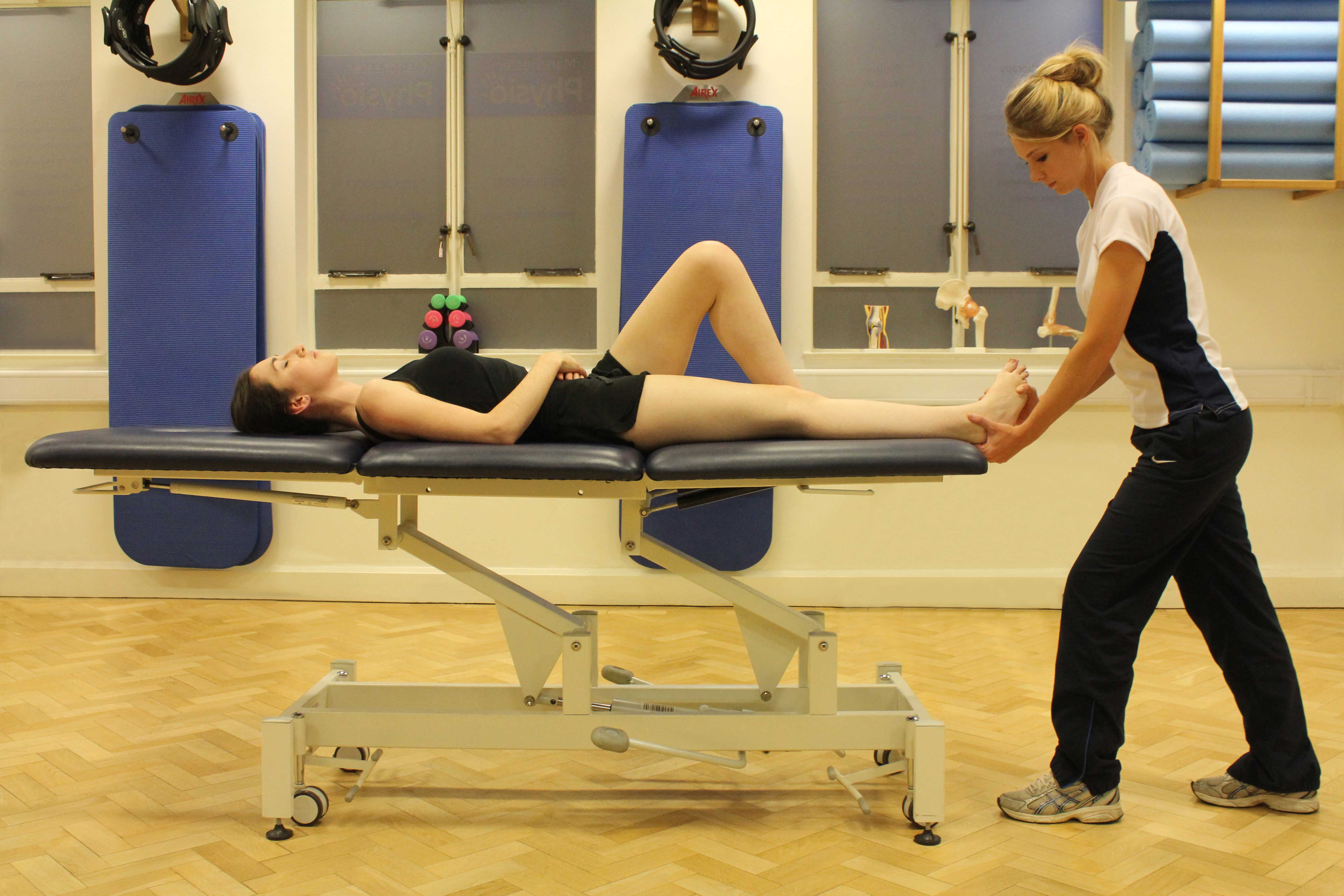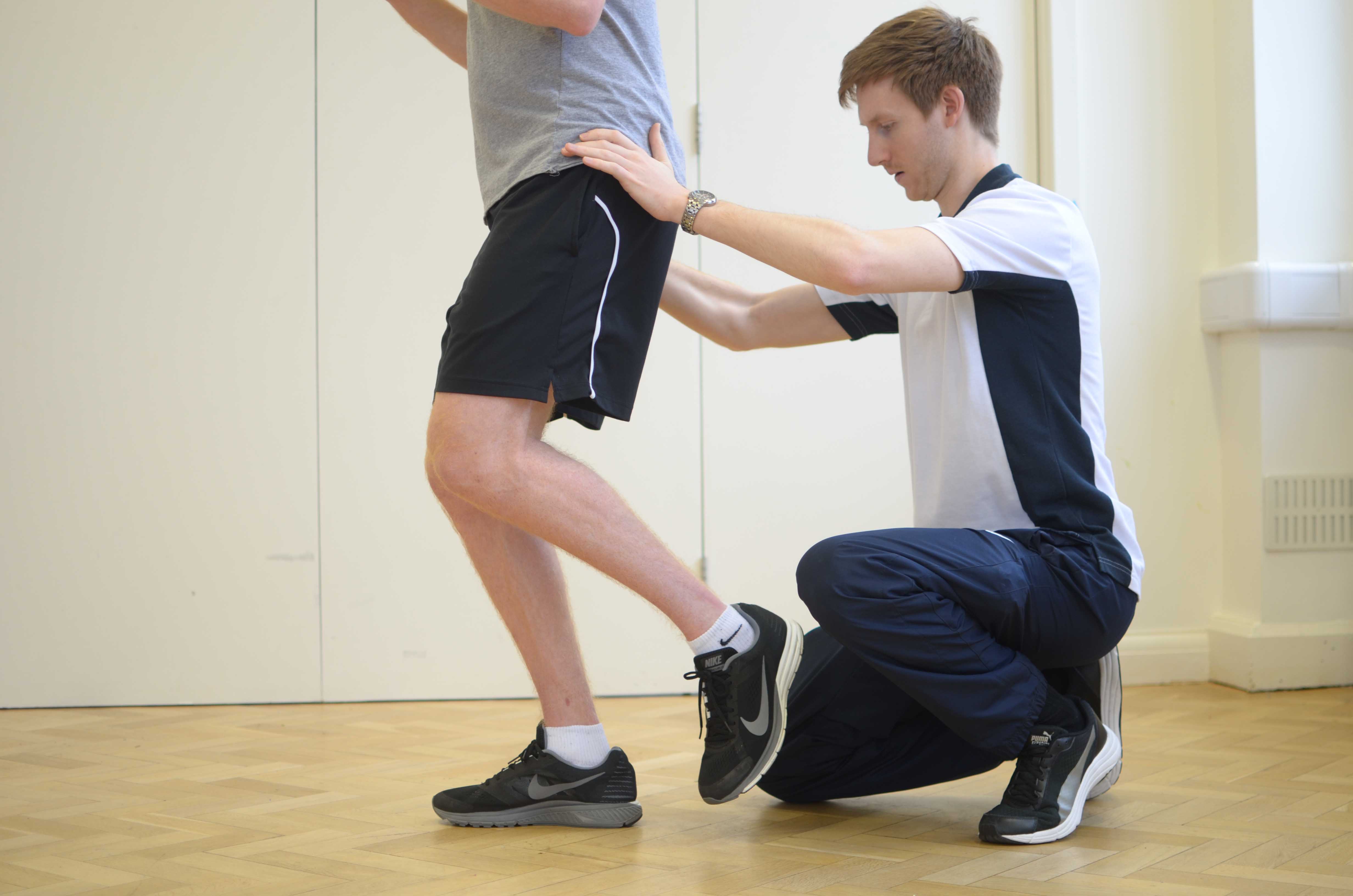What is paratendinopathy of the Achilles tendon?
The Achilles tendon is the large tendon which joins the muscles of the calf to the heel bone. It is surrounded by a sleeve of connective tissue called the paratenon. Paratendinopathy is the inflammation of this sleeve. Physiotherapy is an excellent treatment for paratendinopathy of the Achilles tendon.
How does paratendinopathy of the Achilles tendon happen?
Paratendinopathy of the Achilles tendon develops from irritation and repeated trauma to the Achilles paratenon. The function of the paratenon is to protect the Achilles tendon and reduce the friction caused by movement between the tendon and adjacent structures. The paratenon can be irritated if this movement is interfered with. For example, when wearing ill-fitting shoes which put excessive pressure on the back of the heel. Paratendinopathy can also be caused by repeated trauma. Repetitive use of the calf muscles and, therefore, the Achilles tendon can lead to trauma to the paratenon as the tendon moves in this connective tissue sleeve. Regardless of what causes the trauma, to repair the damage an inflammatory response is commenced. This inflammation within the paratenon is called a paratendinopathy.
 Above: Passive stretch of the achilles tendon performed by specialist therapist
Above: Passive stretch of the achilles tendon performed by specialist therapistWhat are the symptoms of paratendinopathy of the Achilles tendon?
Paratendinopathy causes pain at the back of the ankle, just above the heel bone. The pain can develop quickly or gradually. There may also be obvious swelling around the Achilles tendon and creaking or crunching sensations can sometimes be felt at the back of the ankle as the foot is moved. Other symptoms may include:
What should I do if I have paratendinopathy of the Achilles tendon?
Paratendinopathy does not normally settle unless the cause is addressed. If you suspect that you have a paratendinopathy, you should arrange a physiotherapy assessment as soon as possible. In the meantime, you can ice your Achilles tendon using a bag of frozen peas or crushed ice wrapped in a damp cloth for 15–20 minutes every couple of hours.
What shouldn’t I do if I have paratendinopathy of the Achilles tendon?
If you are experiencing pain in the region of your Achilles tendon then you definitely require a physiotherapy assessment. If you continue with normal activity your injury could potentially worsen and develop into a chronic injury. This could lead to scar tissue within the paratenon and, as a result, a prolonged lay off from normal activity.
 Above: Stability training for the foot and ankle supervised by an experienced physiotherapist
Above: Stability training for the foot and ankle supervised by an experienced physiotherapistPhysiotherapy for paratendinopathy of the Achilles tendon.
Physiotherapy is essential in the treatment of Achilles tendon paratendinopathy. Initially, your physiotherapist can diagnose your injury and determine a treatment programme. Treatment may involve: To arrange a physiotherapy appointment call Physio.co.uk on 0330 088 7800 or book online.

 0330 088 7800
0330 088 7800

































